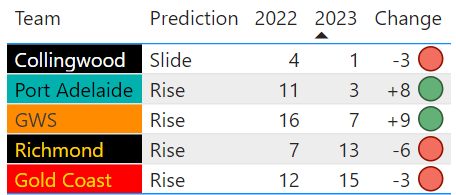Understanding your data for business success - 5 Reasons Why
Business leaders rely on data to make informed decisions. They collect data from their customers to know their pain points and to gain insights into their market. Through data analysis, you can make effective decisions based on customer trends and behaviours and even make predictions about what they’ll do next.
But the success of your business doesn't solely rely on the data you’ve gathered or simply creating a large data lake to store everything in. You need to align business strategy, all departments and start thinking like a data-driven business.
Don’t think that your business is too small to benefit from using data. According to Bernard Marr, data will affect every single business—big or small and change the way we conduct it.
To benefit, you have to understand how data can help your business and look for the right partners to help you make informed decisions and take the best actions.
Here are 5 reasons why you need to understand your data for future business success.
1 - Keep up with customer demands.
Personalisation has been around digital marketing for a while, and it improves customer experience by giving them relevant information that addresses their needs and interests.
Customers now expect everything to be personalised—and using data is the only way you can keep up with that. It is intrinsically linked with good customer experience. Prospects will easily turn their back on your brand if they don't get the quality experience they’ve become accustomed to.
Analysing your data also means listening to your customers to build a good relationship with them. Customers who have an emotional bond with the brand visit their stores 32% more often and spend 46% more money.
To achieve this, you need to understand what personalisation data you already have and think about the data you would like to use in future. You can start testing with your current data assets and make a plan to gather more through progressive data capture. This should be part of your data strategy, always testing to see what improves engagement and conversion.
2 - Improved marketing decisions.
Marketing involves working with many teams, through multiple channels and sometimes different languages, which will all need to be considered to produce effective campaigns.
The number of visits to your website, the leads generated by your campaigns, and the engagement level produced by your content are all vital to understanding what is working and what isn’t.
The number of metrics now available can be overwhelming and navigating your way through these to find the key insights can take time. There isn’t just one tool or piece of software that can do everything, no matter what it says on the box!
Our fundamentals for making the best marketing decisions
Find your benchmarks
Through all of your tools, understand what “normal” is in terms of website visits, conversions, purchase channels and pathways.
Plan to do more with less
Manage your marketing budget by segmenting your customers and figure out who to target and who to avoid spending too much time and money on.
Monitor and fine-tune social media engagement
Social can be a very powerful tool but needs to be constantly assessed to understand engagement levels. Your strategy should always be evolving.
3 - Building customer experience.
Customers now expect personalised experiences tailored to their interests. 79% of buyers only consider brands that appeal to their needs and interests.
AI and Machine Learning techniques can gather and use customer data to create content that matches customer needs and interests. It can help understand customer behaviour, why your customers come to you and offers ways to help them. This is all very achievable through ever-evolving technology but finding the right one for your business can be like finding a needle in a haystack.
Our most important tip - Really consider the integration and additional team upskilling required to action these and start with basic steps rather than diving straight into a complicated solution.
4 - Gaining a competitive edge.
Understanding your customer data is the first crucial step. You can easily outpace your competitors by using Machine Learning algorithms like predictive modelling. Predictive modelling is a data-driven methodology that uses historical data to determine who among your prospects or customers are most likely to convert, buy or do something.
This creates relevance for the customer but can also focus your campaigns and budget. Put simply, you can spend less but achieve higher conversions.
Machine Learning algorithms sound fancy but can be quite simple. The complicated part is implementation to core systems and buy-in from all the departments that need to utilise the outputs. By aligning strategy across departments, teams can collaborate to achieve better results and take a step ahead of competitors.
5 - Measurement and performance.
Data analysis is not just about understanding customer needs. Data can give you a better perspective on your business goals, your competitors, how the market is changing and how effective your teams are performing. We’ve worked with many finance teams who are now leveraging the same data science methodologies for financial and business insights.
Data provides clarity so you can achieve better results through stronger strategies. A data-driven business is now the standard and analytical problem solving should be a core capability you look for in your hiring process (the World Economic Forum has said complex problem solving is the number one skill required in 2020).













